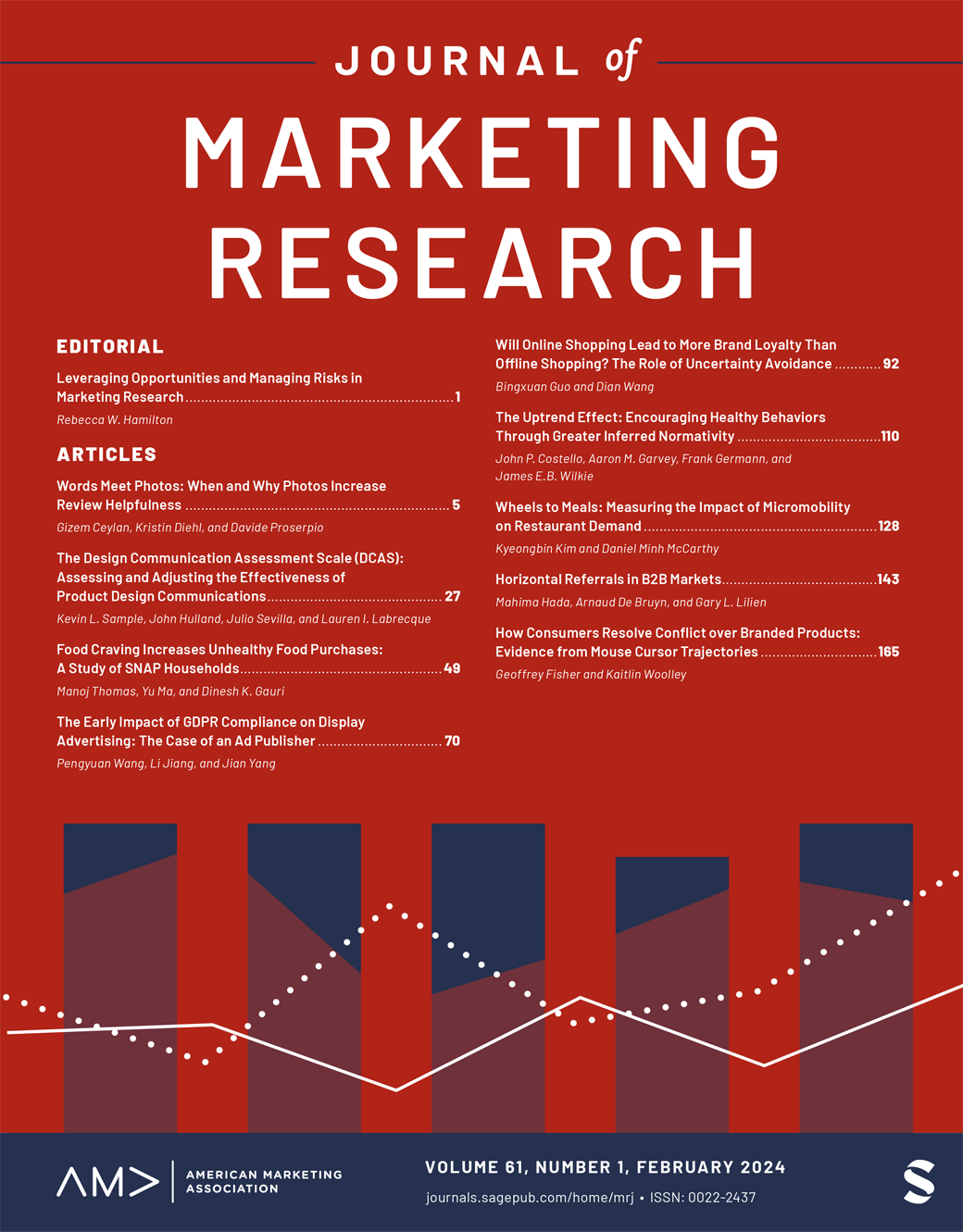EXPRESS: TV Advertising and Online Sales: A Case Study of Intertemporal Substitution Effects for an Online Travel Platform
IF 5
1区 管理学
Q1 BUSINESS
引用次数: 0
Abstract
Digital technologies lead consumers to engage with companies online after they see TV ads, and firms increasingly wish to coordinate TV advertising in real time with online marketing activities. As a result, firms are keen to measure how TV advertising affects consumers' online behavior, but a key question is over what window of time to measure this effect. The standard industry practice of using short attribution windows around an ad to measure a causal effect may miss the possibility that consumer behavior shifts over time due to, for example, intertemporal substitution. We collaborate with an online travel platform and evaluate the results of a field test where part of the country was exposed to TV ads while another part of the country formed a control group. Using the synthetic difference-in-differences approach, we find TV advertising leads to an instantaneous increase in online browsing and sales. However, we also document evidence for intertemporal substitution: consumers appear to move their online activities forward in time in response to TV advertising, leading to lower browsing and lower sales at times when no ad is airing. We further explore the effects of TV advertising on channel choices, device choices and promotion usage and discuss the implications for advertisers and the ad-measurement industry.电视广告与网络销售:某在线旅游平台跨期替代效应的实证研究
数字技术导致消费者在看到电视广告后与公司进行在线互动,公司越来越希望将电视广告与在线营销活动实时协调起来。因此,公司热衷于测量电视广告如何影响消费者的在线行为,但一个关键问题是在什么时间窗口来测量这种影响。使用广告周围的短归因窗口来衡量因果效应的标准行业实践可能会忽略消费者行为随时间变化的可能性,例如,跨期替代。我们与一家在线旅游平台合作,并评估了一项实地测试的结果,其中一部分国家暴露在电视广告中,而另一部分国家形成对照组。使用综合差异中的差异方法,我们发现电视广告导致在线浏览和销售的即时增加。然而,我们也记录了跨期替代的证据:消费者似乎将他们的在线活动及时地向前移动,以响应电视广告,导致在没有广告播放的情况下,更低的浏览和更低的销售额。我们进一步探讨了电视广告对渠道选择、设备选择和促销使用的影响,并讨论了对广告商和广告测量行业的影响。
本文章由计算机程序翻译,如有差异,请以英文原文为准。
求助全文
约1分钟内获得全文
求助全文
来源期刊

Journal of Marketing Research
BUSINESS-
CiteScore
10.30
自引率
6.60%
发文量
79
期刊介绍:
JMR is written for those academics and practitioners of marketing research who need to be in the forefront of the profession and in possession of the industry"s cutting-edge information. JMR publishes articles representing the entire spectrum of research in marketing. The editorial content is peer-reviewed by an expert panel of leading academics. Articles address the concepts, methods, and applications of marketing research that present new techniques for solving marketing problems; contribute to marketing knowledge based on the use of experimental, descriptive, or analytical techniques; and review and comment on the developments and concepts in related fields that have a bearing on the research industry and its practices.
 求助内容:
求助内容: 应助结果提醒方式:
应助结果提醒方式:


